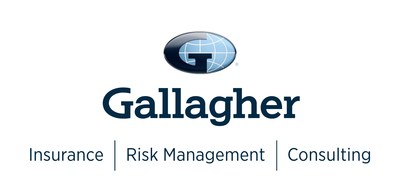Employers' Perceptions of Employee Engagement May Not Match Reality
- Nearly 4 in 10 employers increased the importance of career wellbeing in 2023, a 5-point year-over-year increase
- Employers are realizing the importance of clearly defined career trajectories for employee engagement and business outcomes
- Only 43% of employers provide support in developing and pursuing a career path, indicating room for improvement
- Employers often rely on incomplete data to measure employee engagement
- Pulse surveys have become popular during the pandemic but may provide an incomplete picture of employee engagement
- Transitioning back to annual surveys can help uncover strengths and areas for improvement
- Communication about compensation and benefits is increasingly important for employee engagement
- Crafting employee communications through a marketing lens can improve outcomes
- Only 23% of employers have implemented a comprehensive internal communications strategy
- Employers that prioritize employee engagement and communication strategies gain a competitive advantage
- None.
Insights
Analyzing...
Gallagher study uncovers strategies to help employers optimize investments in career wellbeing
"When employers provide their employees with clearly defined career trajectories, their workforces are more engaged, retention rates climb and, most importantly, business outcomes improve," said William F. Ziebell, CEO of Gallagher's Employee Benefits & HR Consulting Division. "While this is common knowledge for decision makers, just 4 in 10 (
Gallagher's Career Wellbeing Report is the third installment of the larger Workforce Trends Report Series. The research was conducted from December 2022 to March 2023, and sourced data and insights from a total of 4,030 organizations across the US.
Employers often rely on incomplete data to measure employee engagement.
The Gallagher study found that more than half of employers agreed (
This shift away from more detailed research began during the pandemic because employee needs, wants and concerns evolved at such a rapid rate. To capture these changes, pulse surveys — abbreviated questionnaires requiring minimal time investment for participants or data analysis — became one of employers' go-to tactics. The insights gathered were so useful that many employers continue to rely on pulse surveys to formulate their engagement strategies.
However, when measuring a complex variable such as employee engagement, pulse surveys can provide an incomplete picture. Transitioning back to annual surveys will help decision makers uncover the organization's strengths and areas for improvement, and this investment will provide significant cost savings compared to the cost of filling vacancies.
Communicating benefits is as important as offering benefits.
Familiar HR priorities are repeating their well-established role as focal areas for effective talent management, including retention (
Only about half of employers (
Crafting employee communications through a marketing lens will improve outcomes.
What employees see and hear from leadership often influences their attitudes and behaviors, making employers' communication about business strategies, people priorities and work approaches mission critical. For these reasons, nearly every employer surveyed (
There is also skepticism about whether communications can drive change. Just over one-third of employers (
"Employers that commit to employee engagement and communication strategies, measure their effectiveness and adjust accordingly earn an advantage over the competition," Ziebell said. "That's because employees tend to give as much as they get. And we developed the Gallagher Career Wellbeing Report to help employers uncover the best practices to unlock their employees and the organization's potential."
ABOUT CAREER WELLBEING REPORT
Gallagher's 2023 Career Wellbeing Report is the third installment of the Workforce Trends Report Series, covering employee engagement and communication. It presents recent findings on current and emerging trends to help employers optimize their investments in career wellbeing. Each of the other reports centers on a different aspect of wellbeing. Data and insights highlighted in this report are compiled from Gallagher's 2023 Benefits Strategy & Benchmarking Survey. Conducted from December 2022 to March 2023, a total of 4,030 organizations across the US participated. Findings are broken out by region, organization size and ownership structure for peer comparison. Each section features core data highlights, contains tables with detailed results and wraps up with key takeaways.
ABOUT GALLAGHER
Arthur J. Gallagher & Co. (NYSE:AJG), a global insurance brokerage, risk management and consulting services firm, is headquartered in
Contact:
Mary Schwartz, Gallagher
847.378.5893
mary_schwartz@ajg.com
![]() View original content to download multimedia:https://www.prnewswire.com/news-releases/employers-perceptions-of-employee-engagement-may-not-match-reality-301949576.html
View original content to download multimedia:https://www.prnewswire.com/news-releases/employers-perceptions-of-employee-engagement-may-not-match-reality-301949576.html
SOURCE Gallagher








